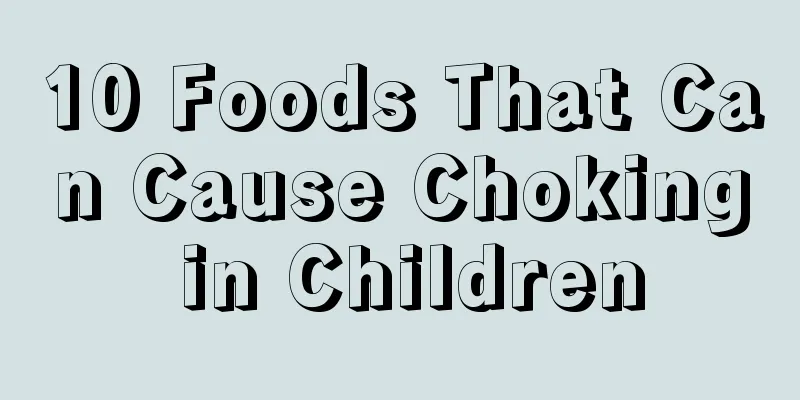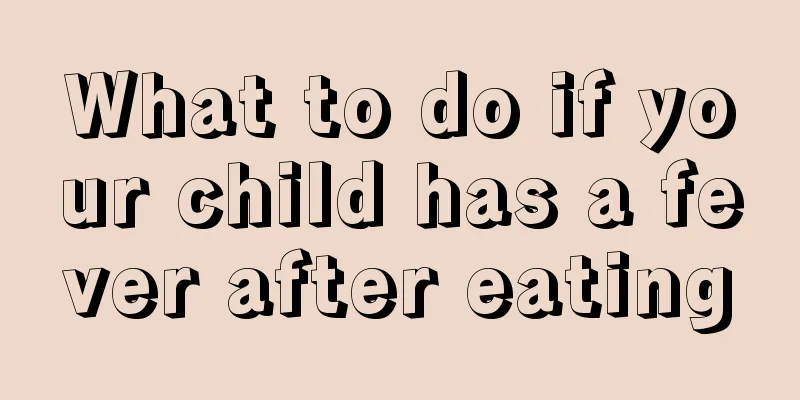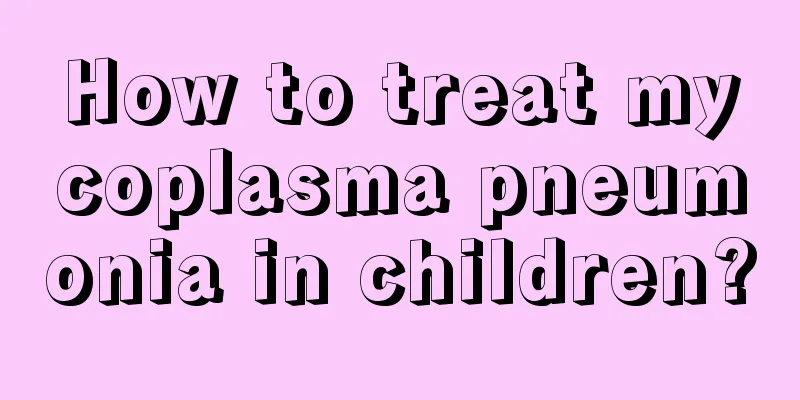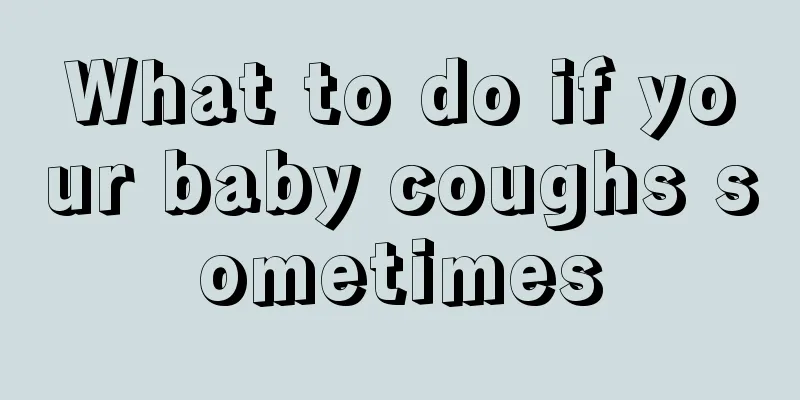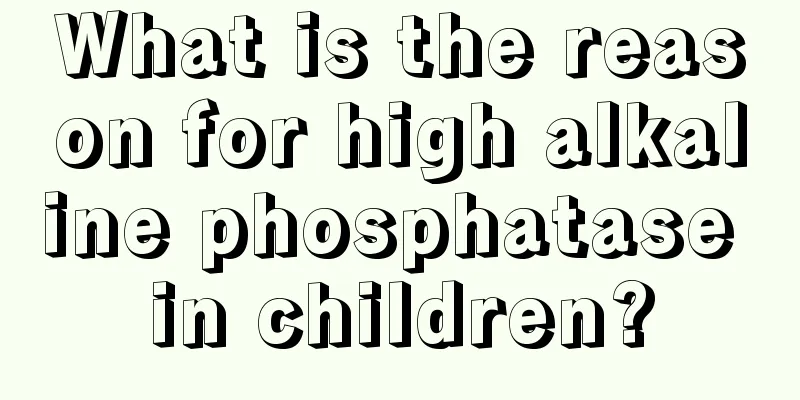Why does my child have breathing noises?
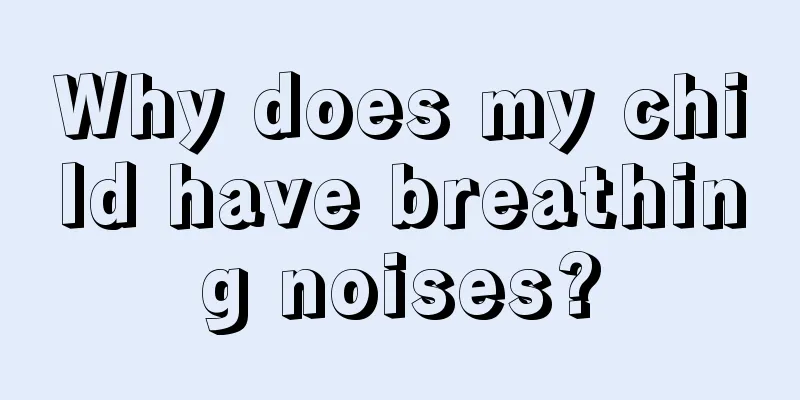
|
Many mothers are having babies for the first time, so they don’t know much about their babies’ various illnesses, such as what’s going on when their baby makes breathing sounds? Will it have any impact on the child’s health? Will it have any impact on the child's body? Or some kind of disease or something. So today I will tell you why children make sounds when breathing. Bronchitis is very common in children, mostly secondary to upper respiratory tract infection. At the beginning of the disease, there are symptoms of upper respiratory tract infection, such as nasal congestion and runny nose, followed by intermittent dry cough. At the beginning of the disease, respiratory secretions increase, and the cough is accompanied by phlegm. The phlegm is initially sticky and quickly turns into purulent phlegm. After 5-10 days, the phlegm becomes thinner and the cough gradually disappears. When the disease occurs, there may be no fever or a fever of around 38.5°C, and the fever will subside after 2-4 days. In infancy, there is a special type of bronchitis called asthmatic bronchitis, which is more common in obese children under 2 years old, who often have a history of eczema and allergies. Asthma symptoms appear soon after onset and may recur. Generally, the symptoms disappear by the time the child reaches school age. Only a few develop bronchial asthma when they are older. The cause of the disease may be that the child is allergic to the infection, which manifests as bronchial spasm and causes wheezing. Children with bronchitis should pay attention to rest, keep the bedroom well ventilated, and maintain appropriate temperature and humidity. Give easily digestible food and drink plenty of boiled water. Provide vitamin B complex and vitamin C, 1 tablet each, 3 times a day. Children with chronic and recurrent illnesses should be given vitamin AD, 1 tablet each time, 2-3 times a day. For young and weak children with mild symptoms, they can take sulfonamides or penicillins orally, and use certain expectorants and cough suppressants to achieve a synergistic therapeutic effect. Sulfonamides can be used in combination with trimethoprim-sulfamethoxazole, 20 mg per kilogram of body weight per day, orally in two divided doses. Since sulfonamides are excreted slowly and can easily cause crystal precipitation in the kidneys, sufficient water should be supplied during medication to facilitate excretion. Some children are allergic to sulfonamides. Rash, exfoliative dermatitis, etc. may occur after use. Do not use if you have a history of allergies. Amoxicillin can be used as a penicillin drug, 40-80 mg per kilogram of body weight per day, taken orally after meals in 3-4 divided doses. When taking oral penicillins, one should also pay attention to the history of penicillin allergy. They should be used with caution in children who are allergic to penicillin, and should even be banned in children with specific constitutions or who are prone to allergic reactions. For these children, the cephalosporin drug cefuroxime can be used instead, 25-50 mg per kilogram of body weight per day, divided into 3-4 doses. Expectorant and cough suppressant drugs can be selected from phlegm-resolving tablets, 1/2 to 1 tablet each time, 3 times a day. For allergic cough caused by various reasons, blood tests can reveal an increased eosinophil count. This type of cough often has a long course and the anti-allergic drug cyproheptadine can be added, 0.25 mg per kilogram of body weight per day, orally taken in 3 divided doses. For children who suffer from bronchitis repeatedly, they should be encouraged to actively participate in physical exercise, strengthen their physical fitness, pay attention to changes in climate, and avoid wearing too much or too little clothing. If bronchitis does not heal repeatedly, you should go to the hospital for a thorough check-up to see if you have congenital bronchial malformations, bronchiectasis, hypoproteinemia, tuberculosis, chronic sinusitis, tonsillitis and other diseases. Bronchitis in children can also be treated with TCM syndrome differentiation: (1) Wind-cold type: cough, itchy throat, thin white sputum, nasal congestion, clear mucus, body pain, floating and tight pulse, thin white tongue coating. The prescription is Xingsu Powder with added ingredients: 3g perilla leaf, 3g tangerine peel, 4.5g pinellia, 9g Poria, 3g liquorice, 4.5g Citrus aurantium, 3g mint, 9g lung wind grass, 3g white angelica, 4.5g peucedanum. Decoction in water, twice a day. (2) Wind-heat type: Cough with yellow sputum that is difficult to cough up, thirst, fever, sweating, rapid pulse, yellow tongue coating with reddish color. Use Wen Dan Tang with added ingredients: 2 g of Ephedra sinica, 3 g of Bitter Apricot, 6 g of Perilla seed, 9 g of Morus alba, 15 g of Rhizoma Anemarrhenae, 15 g of Houttuynia cordata, 6 g of Platycodon grandiflorum, 3 g of Rhizoma Cibotii, and 6 g of Scutellaria baicalensis. Decoction in water and take twice a day. The above is the article about why children make sounds when breathing. Do parents understand it? If a child has any illness and the family is unaware of it, the child must not be given medicine casually, otherwise the condition may become serious. Parents should also pay attention to the child's physical health at all times. |
<<: What to do if your child's lower eyelid turns blue
>>: What is pediatric nephrotic syndrome?
Recommend
Can children bask in the sun when they have a fever?
There are many reasons why children have a fever....
How to stimulate the appetite of a 2-year-old baby?
Many mothers may have this experience: their youn...
What to do if your child has geographic tongue
We all know that first of all we need to know wha...
What to do if your one and a half year old baby has a lot of eye mucus
When the baby is just born, careful mothers will ...
What are the benefits of swimming for newborns?
Many parents like to let their newborns go swimmi...
Recovery degree of baby torticollis surgery
Torticollis is only one part of the disease, and ...
How to treat rheumatoid arthritis in children
I believe that everyone may not be so familiar wi...
How to treat a crying baby
Babies always cry and often make our parents at a...
Causes of oral ulcers in children
Children have relatively poor immunity, so they a...
What's wrong with the newborn's lower body?
Many parents will find that newborn girls have bl...
What to do if your baby sweats a lot
In our lives, babies sweat easily, especially bab...
Can epilepsy in children be cured?
Children are the group that parents care about th...
What are some ways for children to grow taller quickly?
I believe that everyone agrees with this truth in...
What are the symptoms of leukemia in children?
Leukemia is still a very difficult disease to cur...
Why do children only have fever and no other symptoms?
Fever often occurs after a cold, so it is not wro...
